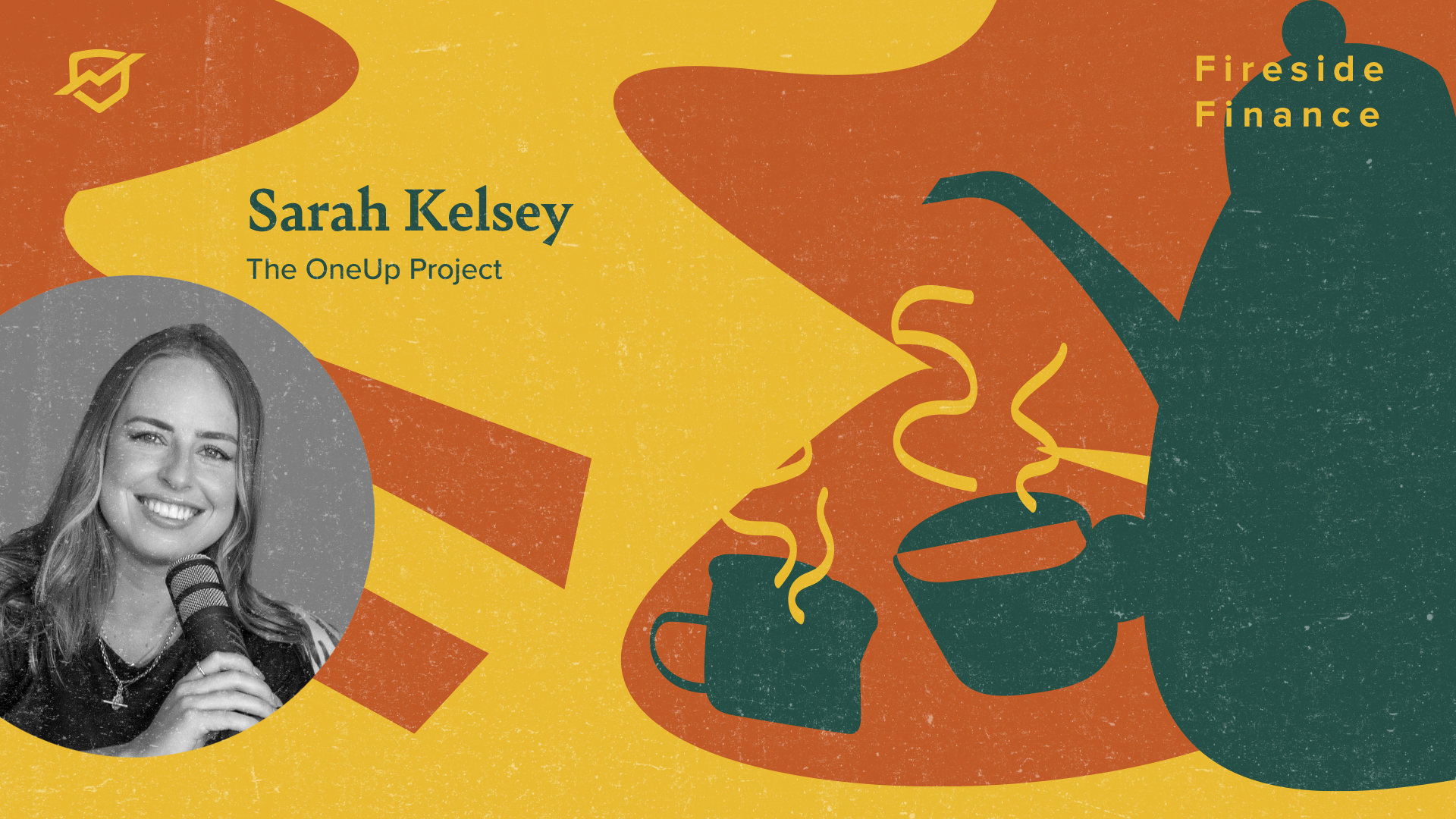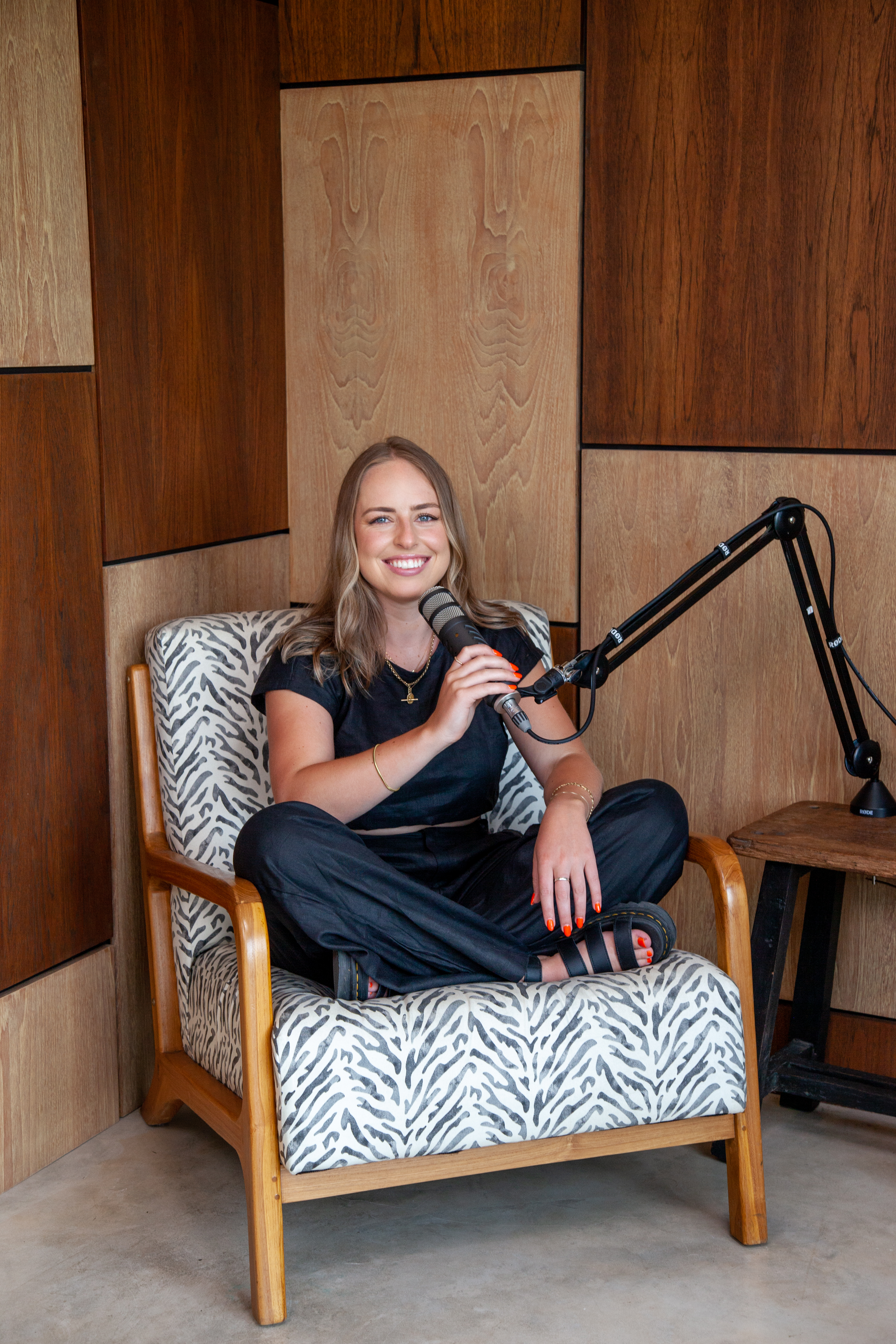
Kia ora! My name is Sarah; I host a podcast called The OneUp Project, a safe place for all people to become the best version of themselves. Through insightful discussion, I aim to push the boundaries of my existing knowledge and take everyone along that journey so we can grow together. This project began in 2020 when I was 21 and has been thriving ever since. I describe it as a creative playground for my mind where I can make mistakes and connections, and hopefully become a much more empathetic, aware, and educated person as a result. I am currently on a one-way ticket out of Aotearoa in search of new perspectives and a consistent remote working lifestyle.
I got into KiwiSaver three years after I started working because my family was big on “owning your own money”. A huge misconception about KiwiSaver is that someone else is ‘using’ your money. After becoming a lot more educated and starting OneUp, I now feel secure in my investments. This was my introduction to personal finance, and from there, I learned more and more about what money management style suited me and my goals best, regardless of the opinions around me.
There are so many misconceptions around KiwiSaver (as described above), but often, many barriers to people engaging in personal finance come from too much information. When we receive a tsunami of advice about a topic we already feel quite exposed to, it can leave us feeling vulnerable and insecure. Often misconceptions come in when people have had conflicting advice and now have no idea where to start. Right or wrong, I personally believe no matter how or where you start, it’s the starting that gets you actively involved in the journey.
It’s everything! Knowing yourself is knowing your finances. On OneUp, I often talk about how financial literacy is only one thing under the umbrella of personal development. You are probably better positioned to answer questions about your finances when you understand who you are and what you want from life. All of your choices, especially investment decisions, depend on you having an idea of what you want from your investments.
I am chasing the work and lifestyle I want over the $$$’s that come with it. So maybe I have not achieved financial freedom yet, but in other ways, I have achieved more freedom in my life than some people have ever been allowed.
Financial success to me is ordering at a restaurant and looking only at the dish, not the price next to it. For me, it’s the small freedoms that remove weighing up ‘pros and cons’ or crunching numbers about when the next pay comes in. I, of course, would appreciate financial freedom, but to me, that doesn’t mean not working; it means not thinking about money.
I am a freelancer and, so naturally, have multiple clients/projects and sources of income. I think choosing to structure my work as a freelancer has served me in so many more ways than as an employee. In saying that, there are certain things I miss about having one job, and one income, but the grass is greener where you water it. Diversification is a huge part of my investment strategy, and passive income has never been a huge goal for me as I prefer the pursuit of work I love. With that said, I intend for many of my investments to act as passive income into my retirement; for now, that is a reasonably ‘set and forget’ process.
I try to keep my investing strategy reasonably easy and ‘forgettable’ where it does its thing in the background, and I can adjust it as my life or goals change. I am much more focused on building a career I am in love with than building wealth right now. A controversial opinion in some groups, but I want to be obsessed with the work I do and contribute to something so much bigger than just me. As long as I am setting up my financial foundations right in the background, I can continue to pursue the lifestyle and work I want regardless of income. I do a financial check-in monthly, and that is enough to get my ducks in a row. I only expense track when I need to shock myself into changing habits, and wow, does that work!
Is “I don’t” an answer? I think the key here is always having a beefy emergency fund that you can rely on to get yourself out of situations, e.g. a flight home last minute or unforeseen expenses. I go through my financial plan monthly and plan out the expected income for the following month. If it is looking a little… sketchy, I change my approach to work or rejig my spending and expenses for the current month to suit next month. Often it involves a lot of maneuvering and adaptability. I am not sure if this lifestyle is sustainable for that reason.

Sarah's a podcaster, marketer, investor and she's unendingly curious about money.
The freedom and lifestyle it offers will forever be its biggest benefit. To have the choice to work wherever and whenever is a privilege and blessing I need to remind myself of daily. Yes, it can be stressful at times, but I also acknowledge how pressure is a privilege, and because of that, I am able to access a lifestyle that isn’t available to everyone. The key is to continue building up my financial foundations at the same time (Kiwisaver, investments, etc), and if I can’t, I am living beyond my means. As I mentioned earlier, I am chasing the work and lifestyle I want over the $$$’s that come with it. So maybe I have not achieved financial freedom yet, but in other ways, I have achieved more freedom in my life than some people have ever been allowed.
My first thought goes to Warren Buffet because I just know I would have a great stack of cash by now. In saying that, I almost want to choose someone who is all about taking big risks and has a good finger on the pulse of innovative ideas. That way, I can be having fun, experiencing the full breadth of human emotion (even if that includes stress), and possibly making some big dosh at the same time.